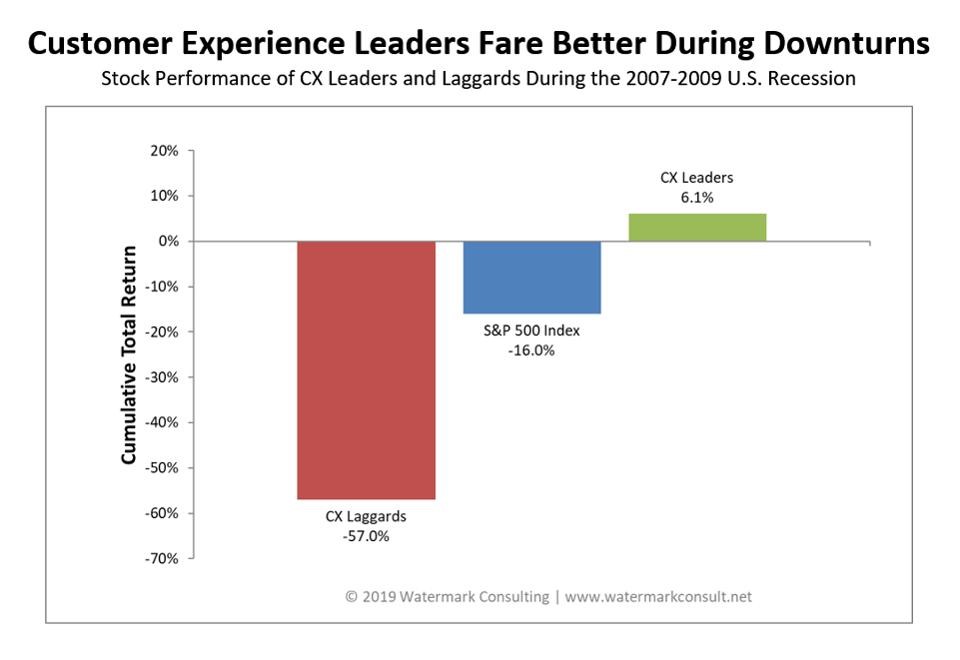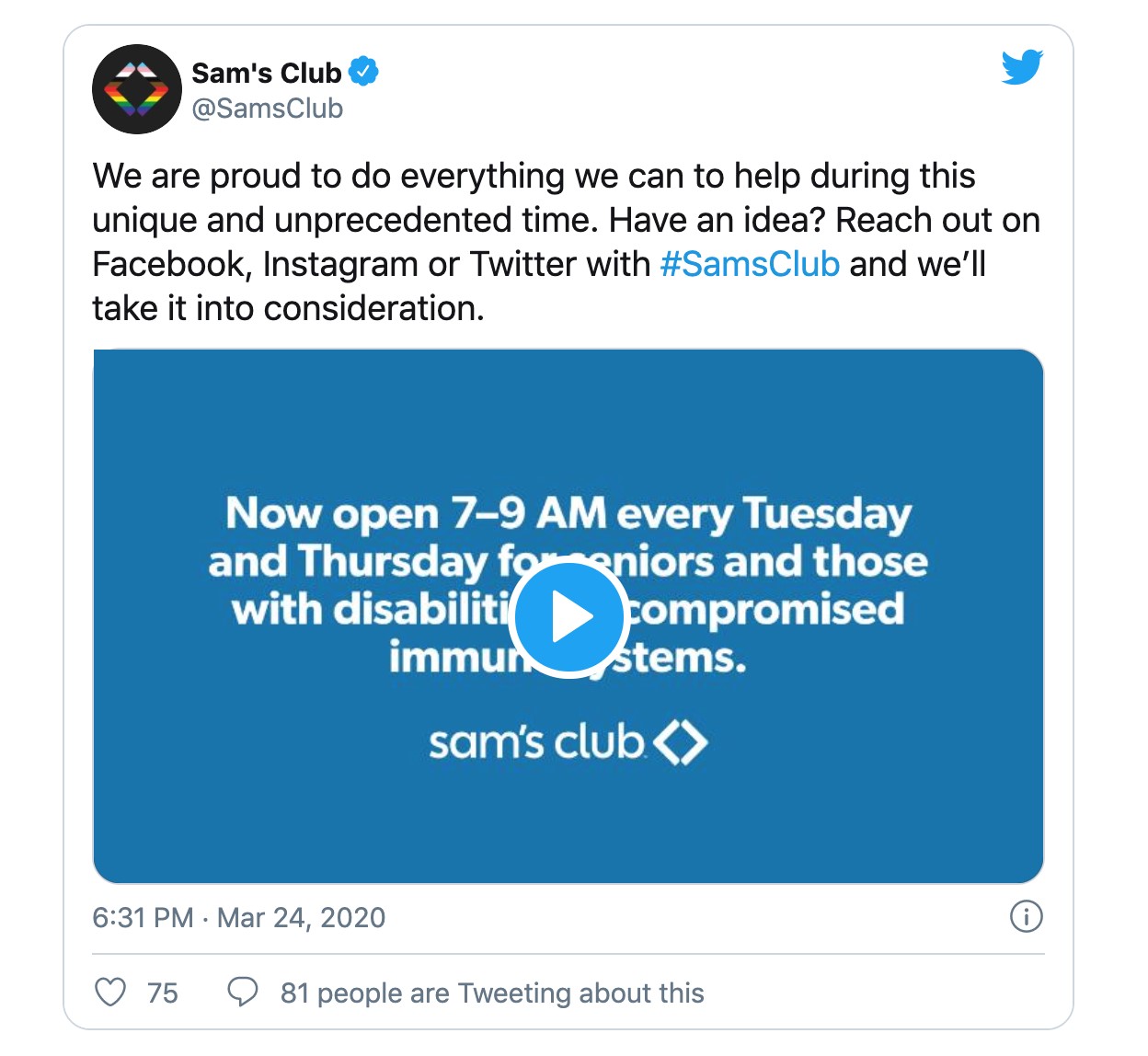“You only find out who is swimming naked when the tide goes out.”
— Warren Buffett, CEO, Berkshire Hathaway
And so, it was in 2020 when COVID-19 sent the tide out, and we learned that brands like Hertz, J. Crew, Pier 1, and ALDO were skinny dipping. All filed for bankruptcy as the pandemic unfolded.
Cheekiness aside, the deep, widespread and rapid disruption COVID-19 has had on business is unprecedented. However, while bankruptcies may be shocking, recessions are a normal, regular part of the business cycle, and even during COVID, the ways brands need to react to them don’t change to a great degree.
With coincidental timing, three of the recent past global recessions fell at the dawn of their decades: the 80’s (‘80-‘82), 90’s (‘90-‘91), and 2000’s (’00-‘02). If we excuse the Global Financial Crisis of 2007-2009 for arriving prematurely, then perhaps 2020’s recession is right on schedule?
With downturns occurring about once every ten years, you may wonder why businesses aren’t more prepared. The truth is many are, but you won’t hear about them until this all clears because companies who are succeeding are generally not making headlines right now. And many more are quickly relearning the lessons of the past. Look at them closely, and you’ll discover that no matter what the category, they all utilize three strategies to weather a recession:
- They balance the short and long term
- They prioritize customer experience
- They decentralize decision making
1. Balance the short and long term
A study of 4,700 public companies before, during, and after a recession (“Roaring Out of Recession,” Harvard Business Review, March 2010) found that 17% of companies didn’t survive, and 80% of survivors such as Sony and Hewlett-Packard failed to regain pre-recession sales and profit growth rates. A select few, such as Staples and Target, were among the 9% that did better post-recession than before — while also consistently outperforming category competitors by at least 10% in sales and profit growth.
This small group of winning businesses were neither the deepest cost-cutters nor the boldest investors, nor did they have growth momentum prior to the recession. Their balanced response was the difference: protecting the company in the short term by lowering operational costs and finding efficiencies, while also ensuring future growth by investing in marketing, R&D, and acquiring new assets.
2. Prioritize customer experience
Watermark Consulting’s Customer Experience (CX) ROI Study of 2019 demonstrates that during the last U.S. recession the stock performance of CX leaders outperformed both the market average and CX laggards (see graph below).

Stock performance alone is not a perfect reflection of business results, but it demonstrates investor response to business results. While CX Leaders weren’t immune to the effects of the recession, they achieved positive returns where others fell short.
CX leaders that maintain a focus on great customer experiences during COVID will build real, sustainable value. Domino’s Pizza adapted early, adding contactless delivery options. American Express now offers the option to waive interest and late fees for cardholders impacted by COVID. Four Seasons Hotels and Resorts recently announced a new worldwide health and safety program to welcome travellers back.
3. Decentralize decision-making
A 2019 study (“Turbulence, Firm Decentralization and Growth in Bad Times,” Philippe Aghion et al.) found that the organizations that decentralized decision making — delegating more — during a recession performed better.
Decentralized decision-making empowers subject matter experts deeper within the organization to assess and leverage changing local information to adapt.
For example, in response to COVID, grocery industry adaptations were often driven from the store level up. Local needs drove the hiring of additional staff, temporary wage hikes, and new sanitization protocols. Waiting for corporate headquarters to develop new policies and rollout new procedures would have been detrimental to business and employee and customer health.
As the pandemic spread, Dr. Michael Ryan, of the World Health Organization, said: “Perfection is the enemy of the good when it comes to emergency management. Speed trumps perfection.” That applies just as well companies as it does to managing coronavirus.
Decentralization is not suited to every business, but the learning is transferrable — especially during recessionary times, it is in each organization’s best interest to gather input from employees at all levels when making key decisions.
A great example is US-based retailer Sam’s Club (a Walmart-owned competitor to Costco), which embraces innovative ideas inside and out. Internally, the company empowers cross-functional teams, known as experience teams, and believes, “Our most innovative ideas come from associates who are closest to the members” Source.
Further demonstrating Sam’s belief that a great idea can come from anywhere, they also leveraged social media to source innovative ideas from fans and followers.

In summary: Recessions are both highly disruptive, and a regular occurrence
During recessions, some businesses fail, many survive, but a select few come through even stronger.
The best way not only to survive, but thrive through this recession – and better prepare for the next one – is to start by asking yourself these three questions:
- Is your organization balancing the short and long term, investing in future growth and managing the day-to-day?
- Is customer experience a priority in your organization?
- Are you decentralizing decision-making to ensure the knowledge of all employees is leveraged on key decisions — especially during recessionary times?
Do these things, and your company won’t get caught swimming naked.

